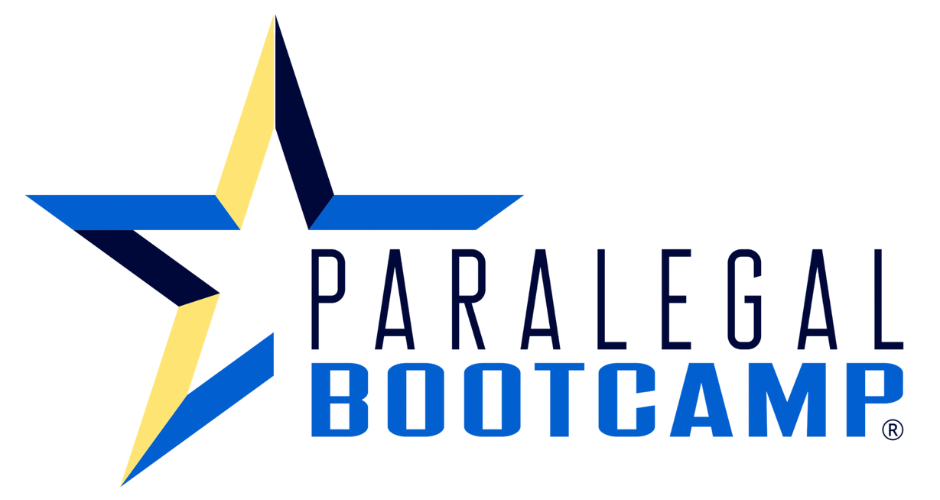Chances are that when you think of failure you immediately have negative associations. Failure is a word that causes anxiety, tension, stress, and just generally makes us feel bad. We are not rewarded for our failures, and we often think of them as holding us back from bigger or better opportunities in our paralegal careers.
Failure is one of the most important and underrated paralegal skills and learning how to reframe the way you view and talk about failure will help you thrive in any job. Failure is a chance to demonstrate your resiliency and engagement. Being able to respond and recover from failure and learning how to move forward after making a mistake is how you become a great paralegal. Learn from other paralegals that have gone before you in 50 Tips for New Paralegals.
Failure is only a temporary setback. Nobody was born knowing how to do their job perfectly and learning how to process feedback and criticism throughout your paralegal career gives you the tools to focus on problem-solving and creating solutions. Instead of viewing failure as a negative, think about failure as an opportunity to learn and grow as an employee. By implementing the feedback you receive you are strengthening your paralegal skills, your interpersonal office relationships, and showing your coworkers how committed you are to being your best.

10 Valuable Lessons From Failure
1. Failure is the best teacher.
If you have failed at a task this is a great opportunity to review what went wrong with your supervisor. This is the chance to ask for mentorship from your leaders, or from another coworker who excels at this task. People enjoy sharing knowledge, and by listening and learning from your coworkers, you are showing your engagement and motivation to improve.
2. Failure teaches who to ask.
In addition to giving you the opportunity to ask for mentorship from your coworkers, you also learn who to ask in the future. When you inevitably struggle with something in the future, you will know who to go to for a template or question. This helps you to be proactive and keep projects moving forward even when you feel out of your depth.
3. Failure teaches you how to learn from criticism.
Failure inevitably comes with criticism, but criticism can be a valuable form of feedback. Criticism can be uncomfortable, but it can help you to identify the areas where you need to improve your performance. Use criticism as an opportunity to engage with your supervisor and ask them for feedback on how they would approach a problem. If you listen to and engage with your critique, it will help your paralegal career in the long run.
4. Take ownership of your failure.
Taking ownership of a failure is difficult. Nobody wants to be responsible for a mistake, but accepting responsibility shows your supervisor that you are willing to learn and grow as a paralegal. Taking ownership of a mistake allows you to move forward with a solution.
5. Take a failure and create a solution.
It is common to come to a supervisor with a problem, but an exceptional employee comes to a supervisor with a solution. Everyone has a different thought process, so coworkers will come up with different ideas for how to approach the same problem.
Sharing an idea for a solution or starting a conversation about how to approach a problem is a valuable paralegal skill for employers. It is so important to keep your paralegal skills sharp and marketable. Instead of coming to your supervisor with a problem, try proposing an action plan, or start a conversation about how you can improve your process. Coming up with a solution shows that you are engaged and trying to understand a problem instead of giving up.
Litigation Paralegal Boot Camp
Are you tired of being the Panic Mode Paralegal who spends your days playing whack-a-mole with last-minute rush projects because you’re waiting for someone to show you what it takes to be great litigation paralegal?
This is the only program of its kind that provides litigation paralegals with all of the tools to master litigation cases from the complaint through the trial, and everything in between.
You will be the Confident Case Strategist faster than you ever imagined possible.
ENROLLMENT CLOSES ON May 2, 2024!

6. Failure is subjective.
When you feel like you are struggling with an assignment, ask for feedback immediately. Discuss the assignment with a coworker and ask them how they would approach the problem. Stepping away from the assignment and having another person explain how they would approach it can often point you in a better direction. It is easy to get caught up in feeling like a failure but do not become a self-fulfilling prophecy. If you take action as soon as you feel a project getting away from you, you can avoid a bigger problem down the road.
Start celebrating your paralegal success with a better way to measure it.
7. Failure helps you identify what you in your career.
Failure can help you identify what you do or do not enjoy doing. All jobs come with tasks that you would rather not do, but failure can help you to identify the things you excel at and that you struggle with. Here are 15 alternative paralegal career options to explore. When you are applying for a promotion or another job in the future, you will know what openings will fit your skill sets, and which ones to avoid.
8. Failure teaches you how to advocate for yourself.
Failure teaches you about what went wrong with a project, and what you need to do differently to be successful. The next time you have a similar project discuss what you need to be successful with your supervisor. Do you need input from coworkers? More hours to complete the project? Do you need access to different tools or software?
9. Failure is about recovery.
Nobody is perfect, and nobody was born knowing how to do their job perfectly. Failure gives us an opportunity to show our coworkers how we respond to criticism, how we implement feedback, and how we learn from our mistakes. If you implement the feedback you received you will continue to improve.
10. Failure is not a reflection of your worth.
Everyone has failed, be kind to yourself. It is important to remember that just because you failed at something, it does not mean that you are not a valuable employee, or that you are unable to perform your job as a paralegal. Failure is a learning opportunity, embrace the chance to grow and learn, and know that next time you will be better.
Conclusion
No one likes to fail at a task, but reframing the way you view failure and the opportunities it allows you in your paralegal career, helps you to thrive and reach your full potential as a paralegal and beyond. Failures (big and small) are opportunities for conversations and feedback and allow for collaborative work between coworkers. Allow yourself to move forward after a failure knowing that you can reflect on the feedback you received and can implement the suggestions you received.

Meet the Author
Rebecca Bach is a civil litigation paralegal for Cole Sadkin with an emphasis on business litigation, compliance, and contract work. She has a background in finance and graduated with honors in 2017 from her paralegal certification courses at Harper College. When Rebecca is not at work she enjoys biking, reading, music, and cooking.


























